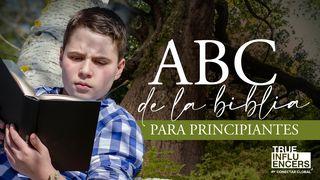Be The Bridge: A 5-Day YouVersion Plan By Latasha MorrisonMuestra

The Process of Forgiveness
When we’ve been hurt, sometimes anger and bitterness give us a sense of control. But the truth is, our bitterness and anger often control us. They hand power back over to those who’ve harmed us. That’s true whether we’re discussing family pains, church pains, or the pains wrought by racism, classism, or sexism. How do we get free of that power? Through the practice of forgiveness.
The first step in forgiveness is understanding just how much we need forgiveness extended to us, “for all have sinned and fall short of the glory of God” (Romans 3:23, NIV). We forgive because we ourselves have been forgiven.
Practicing forgiveness doesn’t mean ignoring the evil we’ve experienced. It also doesn’t mean that we deny or spiritualize away feelings of anger or grief. In Paul’s letter to the Ephesians he wrote, “Get rid of all bitterness, rage, anger, harsh words, and slander, as well as all types of evil behavior. Instead, be kind to each other, tenderhearted, forgiving one another, just as God through Christ has forgiven you” (Ephesians 4:31–32, NLT).
Take a close look at this passage and consider these questions: How can you get rid of rage until you’ve taken the time to feel it? How can you get rid of anger unless you’ve made space to recognize it? How can you forgive without first understanding the wrong you’re releasing the perpetrator from?
Only when we’ve made space for our emotions, when we’ve honestly evaluated them, can we move into true Christ-like forgiveness.
As you receive forgiveness, you may also need to ask for forgiveness for your participation in racism or structural privilege. But as you move into that process of confession and seeking forgiveness, consider how you might do it without demanding forgiveness from those who’ve experienced the pain of racism. So, for example, if you are white, consider talking first to other white people who will not gloss over your confession but will truly help you process your sin. When it’s time to seek forgiveness from those you’ve harmed, give them time and space.
We are called to forgive others just as Christ forgave us. Consider how Christ has given you grace and mercy and how he wants you to extend those gifts to others.
Lord, help me to recognize my hurts. Help me to recognize how I have hurt others. In the name of Jesus, who forgives me, amen.
Escritura
Acerca de este Plan

How does racial reconciliation start with us, in our relationship with God and others? For the next five days we’ll explore what it means to build bridges to racial reconciliation—in our lives, in our relationships, in our communities. We will journey through awareness, lament, shame, and forgiveness, to hope. Because the church is the first place our culture should look for healing.
More
Planes relacionados

La Gracia. 7 Claves Para Vivir en Plenitud.
Marcas De Un Discípulo

ABC De La Oración ... Para Principiantes.

Que El Mundo Crea

Testigos Del Milagro: La Primera Navidad

Confiando en Los Propósitos De Dios

1 Tesalonicenses: Modelos a imitar

ABC De La Biblia Para Principiantes
